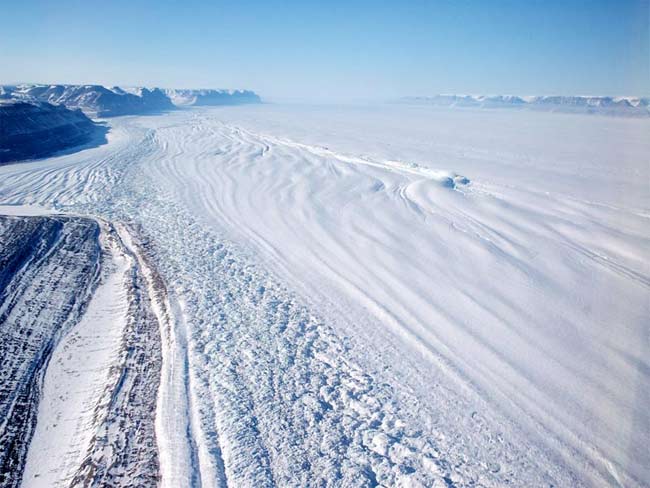That has no bearing on this question.
DING: Of course it does. We are discussing CO2 as a cause for the recent warming trend. Correlation does not prove causation.
Wrong. The discussion was whether or not something can happen that hasn't happened before.
Forest fires occurred by the thousands in the distant past that preceded the appearance of humans and matches
DING: And got much more severe when man interfered because he thought he knew better. Forrest fires serve a purpose. They kill off old growth so new growth can occur.
The forest fire comment was an analogy to show the illogic of your prior point (new things can't happen). I wasn't talking about actual fucking forest fires.
Climate sensitivity is an inherent and inseparable factor of the greenhouse effect. It wasn't added to create a crisis
DING: Actually it's a totally separate phenomenon from the GHG effect, just as the the UHI effect is. The problem is that climate sensitivity is complex and they have it all wrong. It's not a positive feedback, it's a negative feedback as in self compensating.
The greenhouse effect says that greenhouse gases cause warming. Climate sensitivity is a determination of the amount of warming caused by a given amount of greenhouse gas. It is NOT a "totally separate phenomenon". It is well known that climate sensitivity is complex - that's why it is always given as a range and the topic sees a great deal of debate. And climate sensitivity may be AFFECTED by feedbacks but IT is NOT a feedback. That warming increases water vapor in the atmosphere is a fact and water vapor is the most potent of all greenhouse gases. Thus the warming of CO2 receives positive feedback from water vapor.
You don't seem to know the definition of "empirical"
DING: Sure I do. I'm an engineer. The geologic record contains empirical evidence. Climate models are not empirical evidence.
I am also an engineer so I can tell you based on my experience that empiricism is not a process with which engineers have much experience. Empiricism is observation and experimentation. From Wikipedia's article on climate sensitivity: "Climate sensitivity is typically estimated in three ways: using direct observations of temperature and levels of greenhouse gases taken during the
industrial age, using indirectly-estimated temperature and other measurements from the Earth's more distant past, and
computer modelling the various aspects of the
climate system with computers.". The determination of climate sensitivity includes empirical processes.
On what do you base this claim? ["that their models have over emphasized the power of CO2 relative to all other factors"]
DING: Ummmm... the positive feedback effect of CO2, the radiative forcing components that show CO2 is over emphasized relative to the other components, and the fact that their models can't history match past climates for all of said reasons.
Climate models do quite well at hindcasting. You have presented zero evidence that "CO2 is over emphasized relative to the other components". Just saying it doesn't make it so. Warming from ANY CAUSE will produce a positive feedback from increased water vapor. However, radiative forcing factor breakdowns do not include feedback for any components.
So, you reject the correlation between temperature and CO2?
DING: The correlation between temperature and CO2 was broken after the industrial revolution. And even then it was CO2 that correlated to temperature. Not the other way around.
Correlations are not directional in any case. Due to two entirely different mechanism (the Greenhouse Effect and the temperature dependence of Henry's solubility constant, CO2 is produced by warming and produces warming. However, I truly want to know HOW you believe the correlation between temperature and CO2 in the atmosphere was "
broken" by the advent of the Industrial Revolution.



